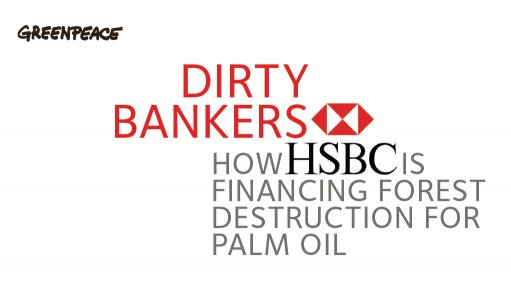
HSBC, headquartered in the UK, is currently one of the largest providers of financial services to the palm oil industry. HSBC has detailed policies on forestry and agricultural commodities (including specific sections on palm oil). It claims these policies 'prohibit the finance of deforestation', but a new Greenpeace report shows many of the companies it funds are destroying forests.
Since 2012, HSBC has been involved in arranging loans and other credit facilities totalling US$16.3bn for the six companies profiled in Greenpeace's Dirty Bankers report, as well as nearly US$2bn in corporate bonds. In some cases, details of contributions made by each lender (including HSBC) are accessible, but for many deals this information is not available.
As these case studies show, not only are HSBC's policies inadequate, but it is providing services to companies that breach them. Its links to some of the most damaging companies in the sector leave HSBC exposed to serious reputational risk, in addition to the financial risks associated with the palm oil industry.
Evidence that these companies were responsible for unacceptable activities is in the public domain: they have been subject to Roundtable on Sustainable Palm Oil (RSPO) complaints or suspension, been cited by the Indonesian government for unrestrained fires and/or been the subject of numerous critical reports from social and environmental non-governmental organisations (NGOs).
Even the most basic due diligence on these companies should have set alarm bells ringing, which raises the question: is HSBC failing to apply its policies altogether, or just failing to apply sufficient scrutiny when assessing whether current or prospective customers comply?
Report by Greenpeace